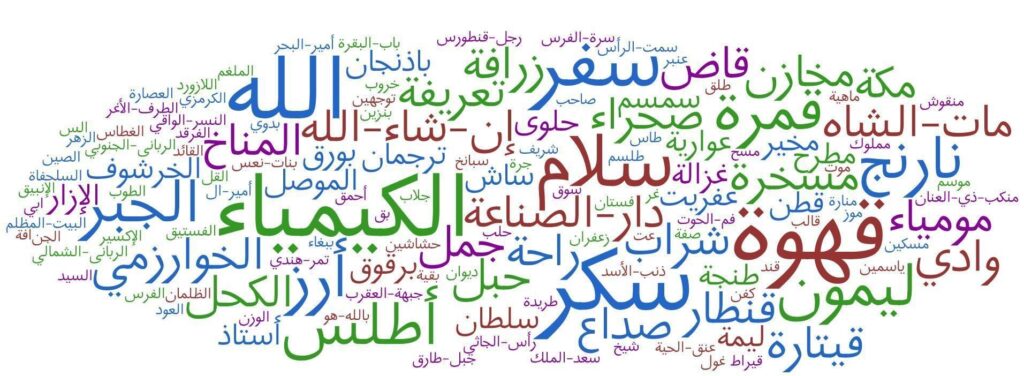The beauty of the Arabic language lies in its wonderful arabic words common and synonyms. It has even been said that the Arabic language contains 12 million words. It’s worrying, isn’t it? But the good news is that you do not need to learn all the arabic words common to speak any language.
But rather it is enough to learn the arabic words common, to begin your journey into the world of language and its magic. You can learn these words through online Arabic language lessons.
Before we start talking about the number of vocabulary words that a person needs to learn the Arabic language, let us ask the following question: How many words does any of us know in his mother tongue?
20+ Arabic Words Common
- Salam (سلام) – Peace
- Shukran (شكراً) – Thank you
- Marhaban (مرحباً) – Hello
- Inshallah (إن شاء الله) – God willing
- Mashallah (ما شاء الله) – What God has willed (used to express admiration or gratitude)
- Yallah (يلا) – Let’s go / Hurry up
- Sabah al-khair (صباح الخير) – Good morning
- Masa al-khair (مساء الخير) – Good evening
- Afwan (عفواً) – You’re welcome / Excuse me
- Na’am (نعم) – Yes
- La (لا) – No
- Halas (خلص) – Finished / Enough
- Habibi (حبيبي) – My dear (male)
- Habibti (حبيبتي) – My dear (female)
- Ahlan wa sahlan (أهلاً وسهلاً) – Welcome
- Ma’a salama (مع السلامة) – Goodbye
- Sahtein (صحتين) – Bon appétit / To your health
- Tayyib (طيب) – Okay / Good
- Bismillah (بسم الله) – In the name of God (said before starting something)
- Alhamdulillah (الحمد لله) – Praise be to God
- Assalamu Alaikum (السلام عليكم) – Peace be upon you
- Wa Alaikum Assalam (وعليكم السلام) – And upon you, peace
- Ana (أنا) – I / Me
- Anta (أنتَ) – You (male)
- Anti (أنتِ) – You (female)
Benefits of learning Arabic vocabulary
If you do not have a good repertoire of arabic words common, you will not be able to speak or understand the Arabic language. Vocabulary is like mosaic pieces, without which a painting cannot be executed. You must make a real effort to learn Arabic, and any other language at all.

There is no magic trick or secret formula for learning common vocabulary. Choose the method that suits your mood and suits your needs, while being patient and persistent, and rewarding yourself when you reach your goals.
Nowadays, you can learn arabic words common through online Arabic lessons, in fun and useful ways. When you learn arabic words common in everyday life, you can use it to communicate with others, express yourself, and fulfill basic needs.
It is necessary to know arabic words common when going shopping, or when dealing with some matters in government departments, schools, the hospital, the barber shop, and others.
What are the types of the Arabic Language?
In addition to arabic words common. It is worth noting that the Arabic language has three types:
- Classical Arabic, Modern Standard Arabic, and Colloquial Arabic. Classical Arabic is characterized by being an ancient language, the language of the Holy Qur’an and the Noble Prophet’s Hadith, in addition to the literature of the Umayyad and Abbasid era, and many intellectual, poetic, and religious works.
- While Modern Standard Arabic is the modern-day language for writing books, magazines, and newspapers. It is also the language of audio-visual media, and the language of administration and correspondence.
- As for colloquial Arabic, it is the daily language that people use in their ordinary lives.
The importance of learning the Arabic language
Therefore, many researchers enumerated the reasons for learning the arabic words common and its clear importance in many points that we had to know, which are:
The Arabic Language represents our identity
on which previous civilizations arose, and from it emerged our customs and traditions, in addition to writing down ancient books and references in the arabic words common, and through it, the history of Arab sciences was recorded, which later became the origins of modern technological development.
The second reason for learning the Arabic language is to consolidate the foundations of belief and religion
As the arabic words common is closely linked to the Holy Qur’an, given that it was revealed in the Arabic language in what is considered a glorification and sanctification of it, and its sciences, represented by Islamic jurisprudence, Islamic law, and the sciences of Hadith and the Qur’an, were also written in the Arabic language.
Its importance in communication and acquaintance
As the arabic words common is used on all official occasions, especially on holidays, conferences, and scientific seminars, this is evidence of its importance and eloquence and the dignity, greatness, and prestige it bestows on its speakers.
The fourth reason for learning the Arabic language is that it contains all the sounds in all other languages
As Arabs are the only ones who are able to pronounce all the sounds from all their sound phonemes, which is not available in other languages that do not contain all the sounds like the arabic words common, and thus it is easier for people to pronounce them. Arabic speakers learn any language without the struggle or necessity of acquiring a new sound.
Thus, the importance of the Arabic language in general appears in learning and acquiring it, and the necessity of establishing the pillars of Arab culture.
Preserving our identity from being lost among other languages, as well as completing the role of the Arabic language in building our civilization that has been established for thousands of years.
How do you master learning the Arabic language?
There are steps that the learner must follow in order to master the arabic words common correctly, and be able to use it in the required manner, which are:
- Start learning Arabic sounds and their proper phonetic exits, while practicing writing them in the different positions (first – middle – last) of the word, and then learning words of two letters, then of three letters, then of four, and so on.
- Moving on to the second stage is by teaching the student the largest possible amount of Arabic words with their conventional meanings, reading and writing them, with the importance of accompanying them with pictures and video clips such as video that express the meaning of the word.
- Explaining how to form short sentences from two words, then from three words, then from four, and so on, while learning to read, write and understand them.
- Teaching the student how to use connectives in sentences, such as prepositions and conjunctions.
- Teaching the student how to form constructive sentences such as a question using interrogative tools and placing a question mark (?) at the end of the sentence in writing.
- Begin explaining the rules of Arabic grammar and morphology, by beginning to mention the types of sentences, nominal and verbal, leading to parsing and knowing the morphological scale.
Conclusion
The Arabic language is the oldest living language on Earth, and there is disagreement among researchers about the age of this language. We find no doubt that the arabic words common that we use today has existed for more than one thousand six hundred years, and Allah – Glory be to Him – has ensured the preservation of this language until Allah inherits the earth and those on it.
In the early eras of Islam, Arabic spread throughout most parts of the globe and reached what Islam had achieved, and was linked to the lives of Muslims, becoming the language of science, literature, politics, and civilization, in addition to being the language of religion and worship.

